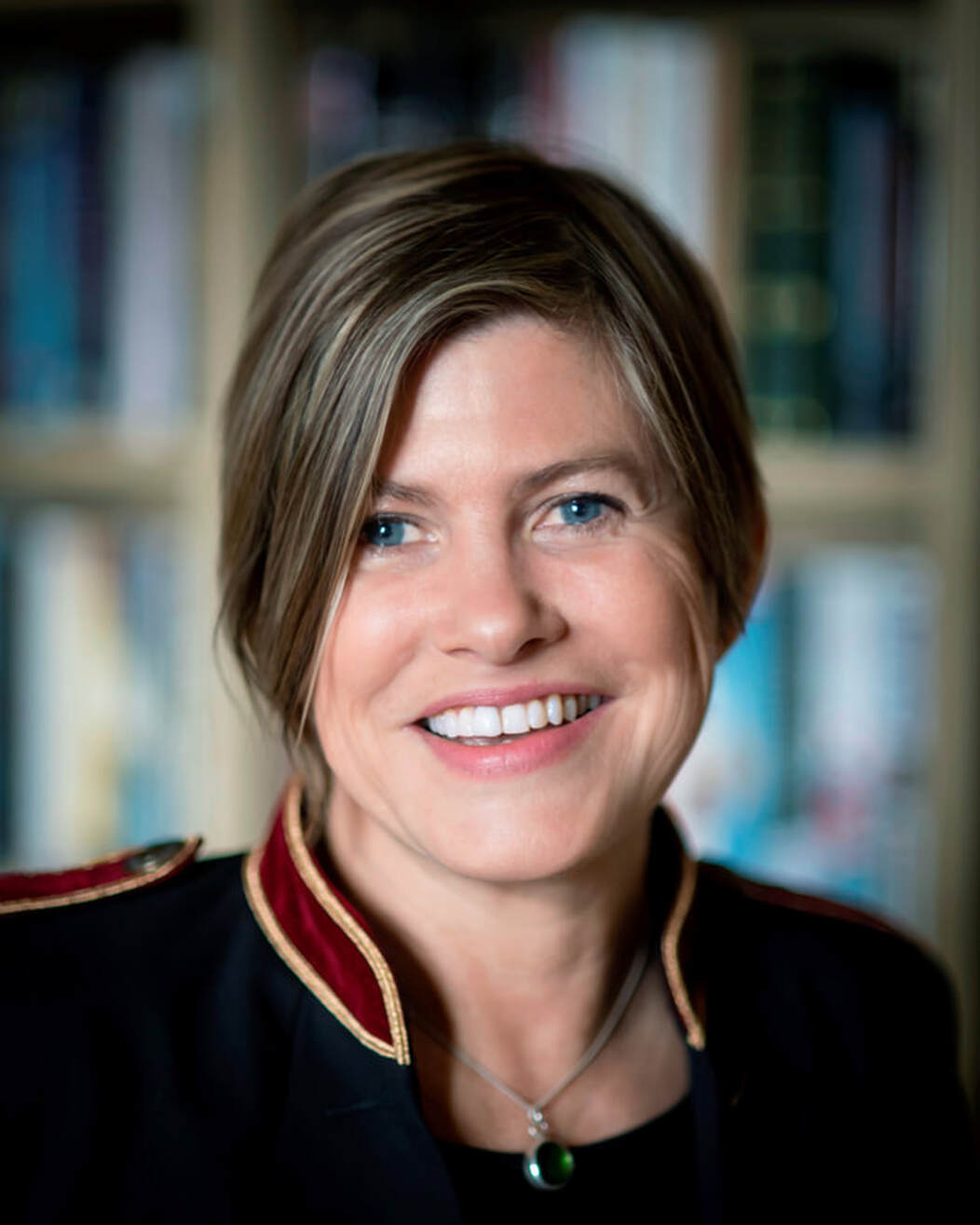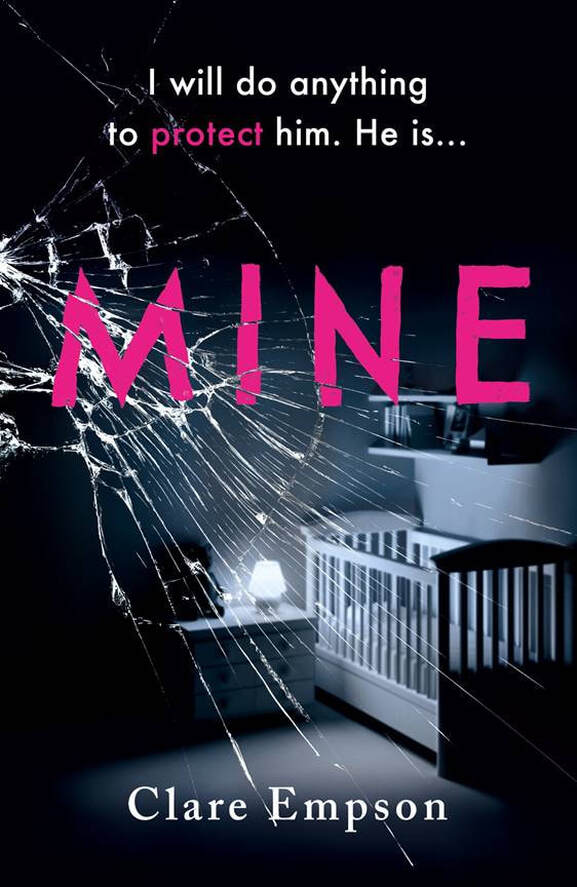Clare Empson
Releases A Gripping new thriller
Acclaimed novelist Clare Empson announces the release of MINE,
a powerful story of motherhood, love and loss
published on Thursday 19 March 2020
paperback original by Orion Fiction.
a powerful story of motherhood, love and loss
published on Thursday 19 March 2020
paperback original by Orion Fiction.
About
'MINE'
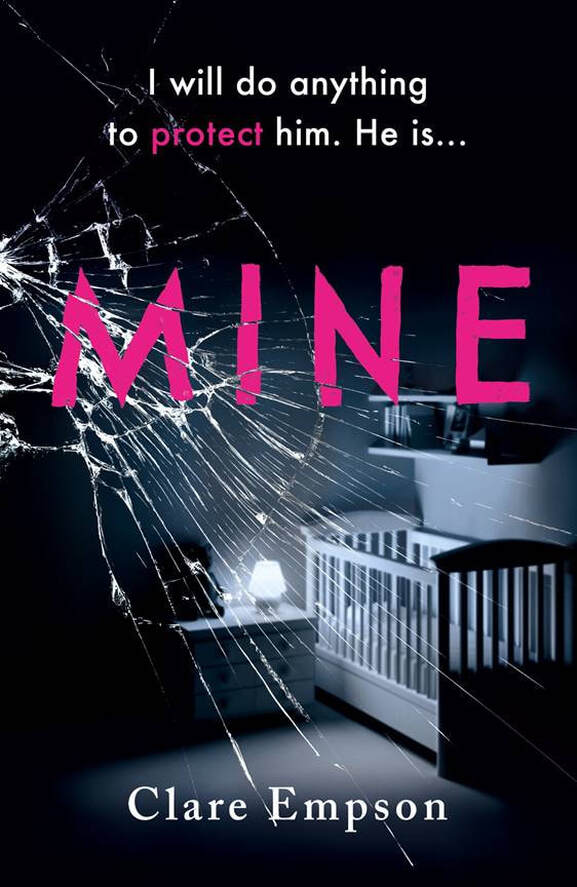
MINE is a riveting emotional thriller. On the surface, Luke and his girlfriend seem to have a perfect life. He's an A&R man, she's an arts correspondent and they are devoted to their newborn son Samuel. But beneath the gloss Luke has always felt like an outsider. When he finds his birth mother Alice, the instant connection with her is a little like falling in love. So, when Hannah goes back to work, Luke asks Alice to look after their son. But Alice - deranged with grief when her baby was taken from her 27 years ago - starts to fall in love with Samuel, and starts to pretend their child is hers.
MINE was inspired by Clare’s husband finding his birth mother and the difficulty of navigating a relationship with a biological parent who is also a stranger. It explores the psychological fallout from adoption looking at how that original primal wound can have a devastating effect on the child as an adult. The book also takes the theme of love in all its forms; the intensity of first love, mother love and the radically different ways of parenting and how friendship can sometimes be the most profound love of all.
MINE was inspired by Clare’s husband finding his birth mother and the difficulty of navigating a relationship with a biological parent who is also a stranger. It explores the psychological fallout from adoption looking at how that original primal wound can have a devastating effect on the child as an adult. The book also takes the theme of love in all its forms; the intensity of first love, mother love and the radically different ways of parenting and how friendship can sometimes be the most profound love of all.
About
Clare Empson
Clare Empson is a journalist with a background in national newspapers and has worked as a small business editor, finance correspondent and fashion at the Mail on Sunday and the Daily Express. Empson freelances for The Sunday Telegraph, The Sunday Times, the Evening Standard and Tatler amongst others. She currently works as editor/founder of experiential lifestyle website www.countrycalling.co.uk. Empson’s critically acclaimed debut HIM was published in April 2019.
Clare Empson
talks to pauliepaul
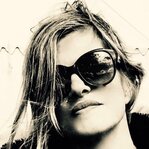
Did you find it easier to write (in that you’ve perfected a style of writing) than your first book? I suppose I’m after confirmation that the first book is the hardest?
Actually I found book two more difficult! I was working to a tight deadline for my publisher and had to turn around the first draft in just over six months. Having spent nine years on the first novel that felt like a challenge to say the least. I knew the story very well as I had been thinking about it for several years before I sat down to write it. And that helped because much of the thinking around the main characters, Luke and Alice, had already been done. I wasn’t able to agonise too much over my prose, I had to focus on getting the story down and in hindsight I think that was a good thing. When MINE finally went off to the printers it had been such an intense writing experience I wasn’t sure how I would feel about the book. So I was relieved to find I still loved it when the proofs came back. People talk about ‘book two syndrome’ and I’d say I definitely had it. If people have enjoyed your first book expectations around your second can feel a bit pressurising.
Did drawing from real events for ‘Mine’ relating to your Husband complicate the process?
Definitely. MINE was inspired by my husband John finding his birth mother ten years ago. I always knew I wanted to write a story told from the perspective of the adopted son in the modern day and the birth mother’s love story set in the 1970s. But once I started researching the book I found out much more about the psychology of an adopted child and, in particular, how the trauma of being given away at birth will often pursue an adoptee into adult life. And it began to feel too personal. It’s easy to write about your own uncomfortable truths but much more difficult when the weight of emotion belongs to someone else. Quite often I felt I was crossing a line and I’d tell John I was going to stop writing the book. He always encouraged me to keep going because he thought so few people understand the psychological legacy of adoption. In the end I think both John and his birth mother Frances found the novel unexpectedly healing.
Actually I found book two more difficult! I was working to a tight deadline for my publisher and had to turn around the first draft in just over six months. Having spent nine years on the first novel that felt like a challenge to say the least. I knew the story very well as I had been thinking about it for several years before I sat down to write it. And that helped because much of the thinking around the main characters, Luke and Alice, had already been done. I wasn’t able to agonise too much over my prose, I had to focus on getting the story down and in hindsight I think that was a good thing. When MINE finally went off to the printers it had been such an intense writing experience I wasn’t sure how I would feel about the book. So I was relieved to find I still loved it when the proofs came back. People talk about ‘book two syndrome’ and I’d say I definitely had it. If people have enjoyed your first book expectations around your second can feel a bit pressurising.
Did drawing from real events for ‘Mine’ relating to your Husband complicate the process?
Definitely. MINE was inspired by my husband John finding his birth mother ten years ago. I always knew I wanted to write a story told from the perspective of the adopted son in the modern day and the birth mother’s love story set in the 1970s. But once I started researching the book I found out much more about the psychology of an adopted child and, in particular, how the trauma of being given away at birth will often pursue an adoptee into adult life. And it began to feel too personal. It’s easy to write about your own uncomfortable truths but much more difficult when the weight of emotion belongs to someone else. Quite often I felt I was crossing a line and I’d tell John I was going to stop writing the book. He always encouraged me to keep going because he thought so few people understand the psychological legacy of adoption. In the end I think both John and his birth mother Frances found the novel unexpectedly healing.
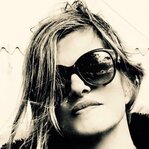
Your background is in Journalism were you always a frustrated Fiction writer? When I started Phacemag I had only really written creatively and my early articles are unreadable –
I guess I was. I always wanted to be a novelist from a very young age and went into journalism after university because it felt like the next best thing. Working on national newspapers as both a news and feature writer, taught me now to write fast under pressure (which is proving useful) but I also felt I lost some creativity along the way. They are such different disciplines, aren’t they? Once I started writing fiction I had to unlearn many of the things I had been taught. It took a while to let myself go and be freer and more exploratory with my writing. For a long time there was a sub editor in my head slashing through anything that wasn’t immediately relevant. Now taking time over writing feels like an indulgence in the best way.
I’m interested in that moment when you let go of a story and how prepared you are to let go, not revisit and tinker?
Do you tinker?
Tinkering is the best bit for me, I love it when a manuscript gets to the stage where you can consider each sentence. There’s no more getting from A to B, now you’re just polishing the prose. Having said that letting go is hard – maybe that’s why it took me almost a decade to get my debut novel on submission. When my first set of edits for HIM came back I remember feeling so relieved I could lock myself away again with this private world I’d created. Characters whom I’d been thinking about for almost a decade. I seriously didn’t want to give that script back! It made me realise how peculiarly intense and personal it is writing a novel. But there always comes a point when you need to let go and that feels exciting.
I mentioned style of writing, I’m finally attempting my first novel after finding a really comfortable style of writing - (similar to you first person, it’s more personal). Can you relate to that or were you confident with a style straight away?
Congratulations on starting your novel. Voice and tone is probably the thing I’ve found easiest with writing whereas for me structure and plot is much harder. I’m with you on first person, it feels like a more immediate way to access interior thoughts. With both books one and two I started off in third person and felt the writing only really took off when I switched to first.
Clare, what did you read when you were growing up?
Everything I could get my hands on, we were big library goers and a family of bookworms. I loved the old classics, Ballet Shoes and Swallows and Amazons and When Hitler Stole Pink Rabbit were ones I reread constantly. I remember binging my way through Enid Blyton’s Malory Towers and St Claire’s series. My favourite childhood book was I Capture the Castle by Dodie Smith. It’s the ultimate comfort read for me and I still dip into it sometimes.
Finally is the auteur in you going to continue with single word book titles?
Not intentionally though I must have a weakness for them as book 3 will have a one word title. I have moved away from the personal pronouns though.
Thanks for talking, best pauliepaul
I guess I was. I always wanted to be a novelist from a very young age and went into journalism after university because it felt like the next best thing. Working on national newspapers as both a news and feature writer, taught me now to write fast under pressure (which is proving useful) but I also felt I lost some creativity along the way. They are such different disciplines, aren’t they? Once I started writing fiction I had to unlearn many of the things I had been taught. It took a while to let myself go and be freer and more exploratory with my writing. For a long time there was a sub editor in my head slashing through anything that wasn’t immediately relevant. Now taking time over writing feels like an indulgence in the best way.
I’m interested in that moment when you let go of a story and how prepared you are to let go, not revisit and tinker?
Do you tinker?
Tinkering is the best bit for me, I love it when a manuscript gets to the stage where you can consider each sentence. There’s no more getting from A to B, now you’re just polishing the prose. Having said that letting go is hard – maybe that’s why it took me almost a decade to get my debut novel on submission. When my first set of edits for HIM came back I remember feeling so relieved I could lock myself away again with this private world I’d created. Characters whom I’d been thinking about for almost a decade. I seriously didn’t want to give that script back! It made me realise how peculiarly intense and personal it is writing a novel. But there always comes a point when you need to let go and that feels exciting.
I mentioned style of writing, I’m finally attempting my first novel after finding a really comfortable style of writing - (similar to you first person, it’s more personal). Can you relate to that or were you confident with a style straight away?
Congratulations on starting your novel. Voice and tone is probably the thing I’ve found easiest with writing whereas for me structure and plot is much harder. I’m with you on first person, it feels like a more immediate way to access interior thoughts. With both books one and two I started off in third person and felt the writing only really took off when I switched to first.
Clare, what did you read when you were growing up?
Everything I could get my hands on, we were big library goers and a family of bookworms. I loved the old classics, Ballet Shoes and Swallows and Amazons and When Hitler Stole Pink Rabbit were ones I reread constantly. I remember binging my way through Enid Blyton’s Malory Towers and St Claire’s series. My favourite childhood book was I Capture the Castle by Dodie Smith. It’s the ultimate comfort read for me and I still dip into it sometimes.
Finally is the auteur in you going to continue with single word book titles?
Not intentionally though I must have a weakness for them as book 3 will have a one word title. I have moved away from the personal pronouns though.
Thanks for talking, best pauliepaul
share
